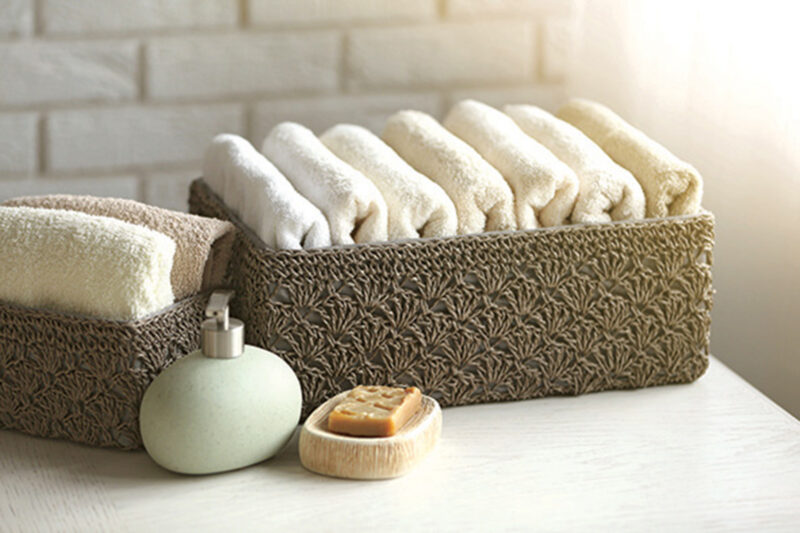An itch can irritate the daylights out of you, and if it is one you can’t scratch, well, then, god bless! But sometimes, as Meri Saheli discovers, it is best to let an itch be. We get experts to elaborate why.
It is difficult to control the impulse to scratch an itch anywhere on your body, but doubly so when it occurs in the vaginal or genital area. But not many know that an itch is the consequence of various reasons including liver disorders, kidney problems, reaction towards some medicines and thyroid issues. And though scratching the itch is mostly an involuntary phenomenon, bringing much satisfaction in its wake, in some extreme cases, the irritation of the itch can be accompanied by a feeling of exhaustion.
However, some doctors advise that an itch is best left unscratched. For instance, Mumbai-based cosmetic dermatologist and laser surgeon Dr Apratim Goel believes that an itch is just a symptom and not a disease per se. “It is important to know what is causing the itch so that the underlying cause can be treated,” says Dr Goel. “There is an itch-scratch cycle, which is a vicious one and can go on if the itch is not controlled. So also, it is best to avoid scratching an itch, as it can lead to wound formation and increase the chances of infection, damage the skin integrity, cause cosmetic alterations or sometimes simply
cause embarrassment.”
While often it becomes difficult to determine the exact cause of the itch or rash, it is always advisable to take doctors’ advice for proper diagnosis and treatment. Local examination of the affected area, certain blood investigations or a skin patch test can be done for proper diagnosis, based on which doctors will prescribe treatments. There are topical and oral medicines. Anti-pruritic medication like lactocalamine, menthol ointment, hydrocortisone cream, etc. can also be used for local application.

To scratch or not to scratch
That is the question. But the mere itchiness of the skin can be largely attributed to dryness. When the skin starts to get dry and results in shrinking, regular moisturising and oiling can retain the oils in the body and can keep the skin soft and healthy. This is also why people with oily skin do not generally suffer from itches because their body secretes the required oils to keep their skin soft.
But one of the most annoying itches is genital itches. Especially in women, vaginal itchiness, accompanied by vulvar irritations, can cause them a lot of distress. According to Dr Bandita Sinha, a consulting gynaecologist and obstetrician, Fortis Hospital and Apollo Clinic, Navi Mumbai, Maharashtra, seasonal changes can also contribute to the rising number of itching cases.
There can be many reasons for your skin to itch. “As a practising dermatologist, I come across itchy skin problems every day in all age groups and in all parts of the body,” elaborates Dr Goel. “It can be something as simple as dry skin to something as grave as kidney disease or infectious such as scabies or lice.”
Dr Sinha believes that “The rising heat and humidity during summers and monsoons can also cause health issues in people.” Though most itches can be treated with over-the-counter medications or home remedies, genital itches are best treated by a qualified expert. “Sadly, some people, especially women, suffer an itch for years and resort to over-the-counter medication that gives temporary relief before they choose to consult a doctor,” says Dr Sinha.
Given below are some of the causes for vaginal itchiness, as listed by Dr Sinha, which need medical attention:

Local irritants
Irritation and allergy in the genital areas can occur as a result of exposure to strong soaps, feminine hygiene products, perfumes, lubricants, hygiene solutions and unhygienic routines followed by a woman.
Allergens
These may include certain foods, drugs and even clothing, especially tight clothing and synthetic undergarments worn during hot and humid days.
Microorganisms
The groin provides a warm, moist environment ideal for microorganisms to thrive in.
Most common of these microorganisms are fungal infections such as candida, ring worm
and bacterial vaginosis.
Sexually transmitted infections
Herpes or trichomoniasis can also cause itch in the vulva.
Parasites
Sometimes, pubic lice and pinworms can cause a nagging itch.
Skin conditions
Some non-infectious skin conditions such as dermatitis, psoriasis and lichen sclerosis can be the cause for itchy genitals.
Senile vulvitis
Changes associated with decreased hormonal levels following menopause can result in itchiness.
Neuropathic condition
Overactive or stretched nerve supply can cause burning as well as itching too.
Dietary deficiency
Sometimes, anaemia, deficiency of vitamins like riboflavin and hypothyroidism can also give rise
to itches.
Lifestyle or hereditary diseases
Diabetes, obesity or jaundice can all increase the tendency for itches in one’s private regions.
Pregnancy
The vaginal discharge during pregnancy can be the main cause of itchiness and irritation in the skin
of the vulva.
Some of the tests that may be prescribed for diagnosis include
- Examination of the cervical discharge
- Vaginal discharge examination and culture
- Pap smear
- Skin biopsies of the vulvar region


